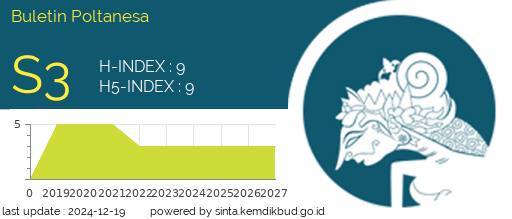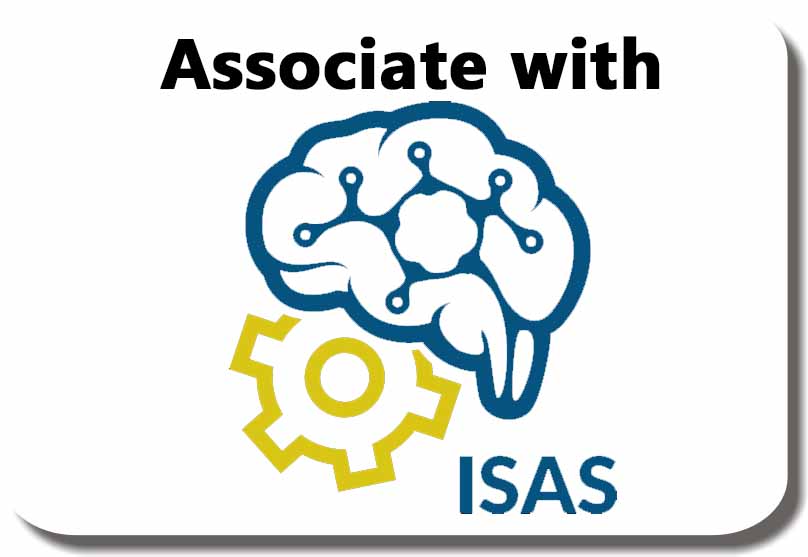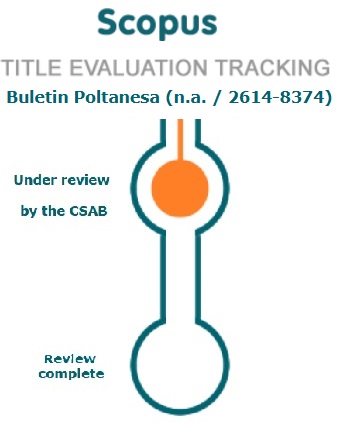Identification of Inhibiting and Supporting Factors for Managerial Performance at PT Anugrah as a Pharmaceutical Company
DOI:
https://doi.org/10.51967/tanesa.v26i1.3262Keywords:
Managerial Performance, Pharmaceutical Industry, Performance Barriers, Performance Enablers, Human Resource Management.Abstract
This study aims to identify the inhibiting and supporting factors affecting managerial Performance at PT Anugrah, a leading pharmaceutical company in Indonesia. Using a qualitative case study approach, data were collected through in-depth interviews with 15 middle-to-senior level managers and analysis of company documents. Thematic analysis revealed that managerial Performance is primarily supported by transformational leadership, regular competency development programs, and a transparent performance-based reward system. Conversely, key inhibiting factors include excessive bureaucratic procedures interdepartmental communication gaps, and inadequate digital infrastructure. The findings align with existing literature on performance management while highlighting industry-specific challenges in the highly regulated pharmaceutical sector. The study provides practical recommendations for PT Anugrah including leadership development initiatives, streamlining operational processes, and enhancing digital transformation efforts. These findings contribute to the broader discourse on human resource management in regulated industries, offering insights for similar pharmaceutical companies seeking to optimize managerial effectiveness. Limitations include the single-company focus and potential respondent bias, suggesting the need for future quantitative studies across multiple pharmaceutical firms to validate these findings.
References
Amornpinyo, N. (2018), The characteristics of entrepreneurs with successful and sustainable small businesses in Northeastern Thailand, Pertanika Journal of Social Sciences and Humanities, 26(1), pp. 113–118.
Anatan, (2010), Meraih Keunggulan Kompetitif Berkelanjutan Melalui Pengintegrasian Fungsi Sumber Daya Manusia Dalam Strategi Bisnis, Journal of Chemical Information and Modeling, 53(9), pp. 1689–1699.
Beno, J. Silen, A. and Yanti, M. (2022) Pengaruh Sumber Daya Manusia Terhadap Kinerja Pegawai, Braz Dent J., 33(1), pp. 1–12.
Dolšak, J. (2024). Competition and consumer prices in the fuel market, insights from a small EU country, Applied Economic Analysis, 32(95), pp. 141–166.
Goetsch, D.L. and Davis, S. (2016). Quality management for organizational excellence , introduction to total quality LK - https://uum.on.worldcat.org/oclc/755004259, Always learning TA - TT -. Pearson Education, pp. 18-25.
Hardi, A.D. (2016), Analisis Strategi Pengembangan Bisnis Di PT. EM Advertising, Agora, 4(1), pp. 199–206. Available
Hambali.H, Dinitri.S (2023), Kelayakan Bisnis dari Aspek Sumber Daya Manusia pada Pembangunan Hotel di Bogor, Global Research on Tourism Development and Advancement, 5(2), pp. 73–79.
Hidayaty, S.D.P.W.N.F.D.E. and Sandi, S.P.H. (2023), Proses Rekrutmen dan Pelatihan dalam Meningkatkan Kinerja Karyawan pada UMKM Bebek Komet, Madani, Jurnal Ilmiah Multidisiplin, 1(5), pp. 796–801.
Inta P.N. Damanik (2013), Faktor-faktor yang Mempengaruhi Dinamika Kelompok dan Hubungannya dengan Kelas Kemampuan Kelompok Tani di Desa Pulokencana Kabupaten Serang, Jurnal Penyuluhan, 9(1), pp. 31–40.
Lestary, L. and Harmon (2017), Pengaruh Lingkungan Kerja Terhadap Kinerja Karyawan Divisi Detail Part Manufacturing Direktorat Produksi PT Dirgantara Indonesia (Persero), Riset Bisnis & Investasi, 3(2), pp. 94–103.
Listyorini, E. (2024), Workplace Discipline and Employee Performance at the Bangka Pratama Tax Service Office ,The Influence of Work Competency, Commitment, and Motivation, JURISMA, 14(October), pp. 255–270.
Maisie, A. et al. (2020), Analisis Faktor-Faktor Yang Mempengaruhi Kinerja Waktu Proyek Konstruksi Perumahan di Surabaya dan di Madura, Pratama Teknik Sipil, pp. 19–26.
Purnomo, H. Hutomo, P.T.P. and Tyoso, J.S.P. (2013) ,Analisis Pelatihan, Kompensasi Dan Komunikasi Terhadap Kepuasan Kerja Dan Kinerja Karyawan (Studi Kasus Pada PT. Pelayaran Inti Internasional Semarang), Jurnal Ilmiah Dinamika Ekonomi dan Bisnis, ISSN, 2337-6082, 1(1), pp. 16–29.
Purwanto, E.N. (2023), Pengaruh Kompetensi Manajer melalui Kapabilitas Inovasi terhadap Tipe Inovasi UKM Berorientasi Ekspor di Indonesia, INOBIS, Jurnal Inovasi Bisnis dan Manajemen Indonesia, 6(4), pp. 488–505.
Rosdiana,Ikhsan.S, Salawati.U (2022), Analisis Kelayakan Usaha Coffee Shop Setara Banjarbaru Kalimantan Selatan (Aspek Manajemen Sumberdaya Manusia dan Aspek Finansial), Frontier Agribisnis, 6(3), pp. 66–75.
Sjioen, A.E. et al. (2023), Bisnis Berkelanjutan dan Tanggung Jawab Sosial Perusahaan, Studi tentang Dampak dan Strategi Implementasi, Jurnal Bisnis dan Manajemen West Science, 2(03), pp. 239–248.
Suganda, F.R. and Kartiko, E. (2021), Analisis Komunikasi Tentang Faktor-Faktor Yang Mempengaruhi Kinerja Ukm Penyamakan Kulit Di Sukaregang Kabupaten Garut, Jurnal Komunikasi Universitas Garut: Hasil Pemikiran dan Penelitian, 7(1), p. 635.
Supardi and Anshari.A (2022), Pengaruh Kepemimpinan Tranformasional Dan Budaya Organisasi Terhadap Kinerja Karyawan Ptpn Ix Batujamus, Jurnal Publikasi Manajemen Informatika, 1(1), pp. 85–95.
Disemadi.S.H. (2021), Urgensi Suatu Regulasi yang Komprehensif Tentang Fintech Berbasis Pinjaman Online Sebagai Upaya Perlindungan Konsumen di Indonesia, Komunikasi Hukum, 7(2), p. 221-248
Syaphutra, B.T. and Nasution, M.A. (2022), Pengaruh Pelatihan, Penerapan Standar Operasional Prosedur (SOP), Sistem Penghargaan dan Lingkungan Kerja Fisik Terhadap Produktivitas Kapster/Barber (Studi pada J&K Barber Shop Medan), Regress, 1(3), pp. 70–81.
Tucunan, R.J.A, Supartha, W.G. and Riana, I.G. (2014), Pengaruh kepemimpinan transformasional terhadap motivasi dan kinerja karyawan (studi kasus pada pt. pandawa), E-Jurnal Ekonomi dan Bisnis Universitas Udayana, 3(9), pp. 533–550.
Ulfa, M. and Ridwan, M. (2015), Analisis Pengukuran Kinerja Karyawan Dengan Metode Human Resources Scorecard Di BMT Logam Mulia’, Jurnal Ekonomi Syariah, 17.
Usman, S. et al. (2023), Faktor Yang Mempengaruhi Kinerja Pegawai (Studi Literatur Manajemen Sumber Daya), Jurnal Pendidikan 7, pp. 10462–10468.
Agnia W.Yusuf.R (2023), Pengaruh Reward Terhadap Kinerja Karyawan Pada Hasta Mulia Garut, Jumper, 2(1), pp. 162–167.
Yolanda, P. et al. (2022), Kinerja Karyawan, Faktor-Faktor yang Memengaruhi Employee Performance, Factors That Influence Puput, Diversita, 8(2), pp. 148–157.
Yusuf, R.Y.S. (2019), Metode Partisipatif pada Pelatihan Financial Life Skills Untuk meningkatkan Literasi keuangan pengajar Tridaya Group Bandung, pp. 28-43.
Downloads
Published
How to Cite
Issue
Section
License
Copyright (c) 2025 Buletin Poltanesa

This work is licensed under a Creative Commons Attribution-ShareAlike 4.0 International License.
The copyright of this article is transferred to Buletin Poltanesa and Politeknik Pertanian Negeri Samarinda, when the article is accepted for publication. the authors transfer all and all rights into and to paper including but not limited to all copyrights in the Buletin Poltanesa. The author represents and warrants that the original is the original and that he/she is the author of this paper unless the material is clearly identified as the original source, with notification of the permission of the copyright owner if necessary.
A Copyright permission is obtained for material published elsewhere and who require permission for this reproduction. Furthermore, I / We hereby transfer the unlimited publication rights of the above paper to Poltanesa. Copyright transfer includes exclusive rights to reproduce and distribute articles, including reprints, translations, photographic reproductions, microforms, electronic forms (offline, online), or other similar reproductions.
The author's mark is appropriate for and accepts responsibility for releasing this material on behalf of any and all coauthor. This Agreement shall be signed by at least one author who has obtained the consent of the co-author (s) if applicable. After the submission of this agreement is signed by the author concerned, the amendment of the author or in the order of the author listed shall not be accepted.








